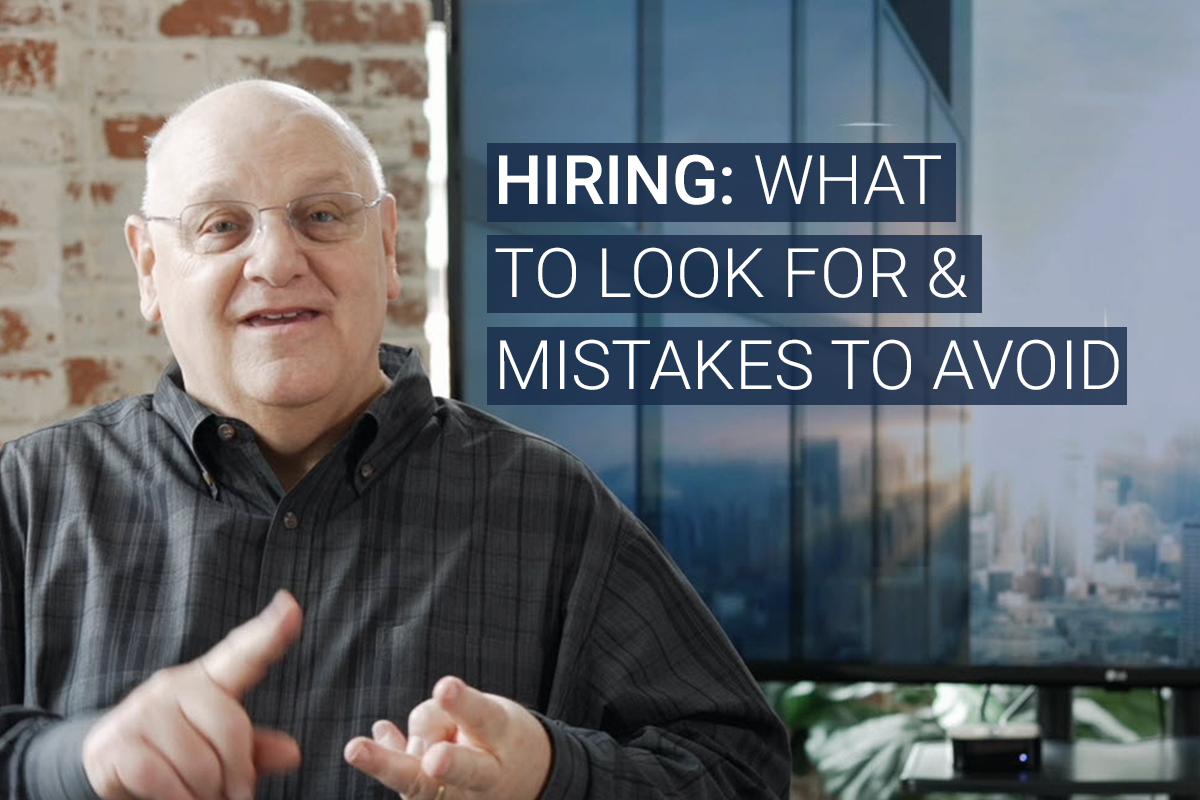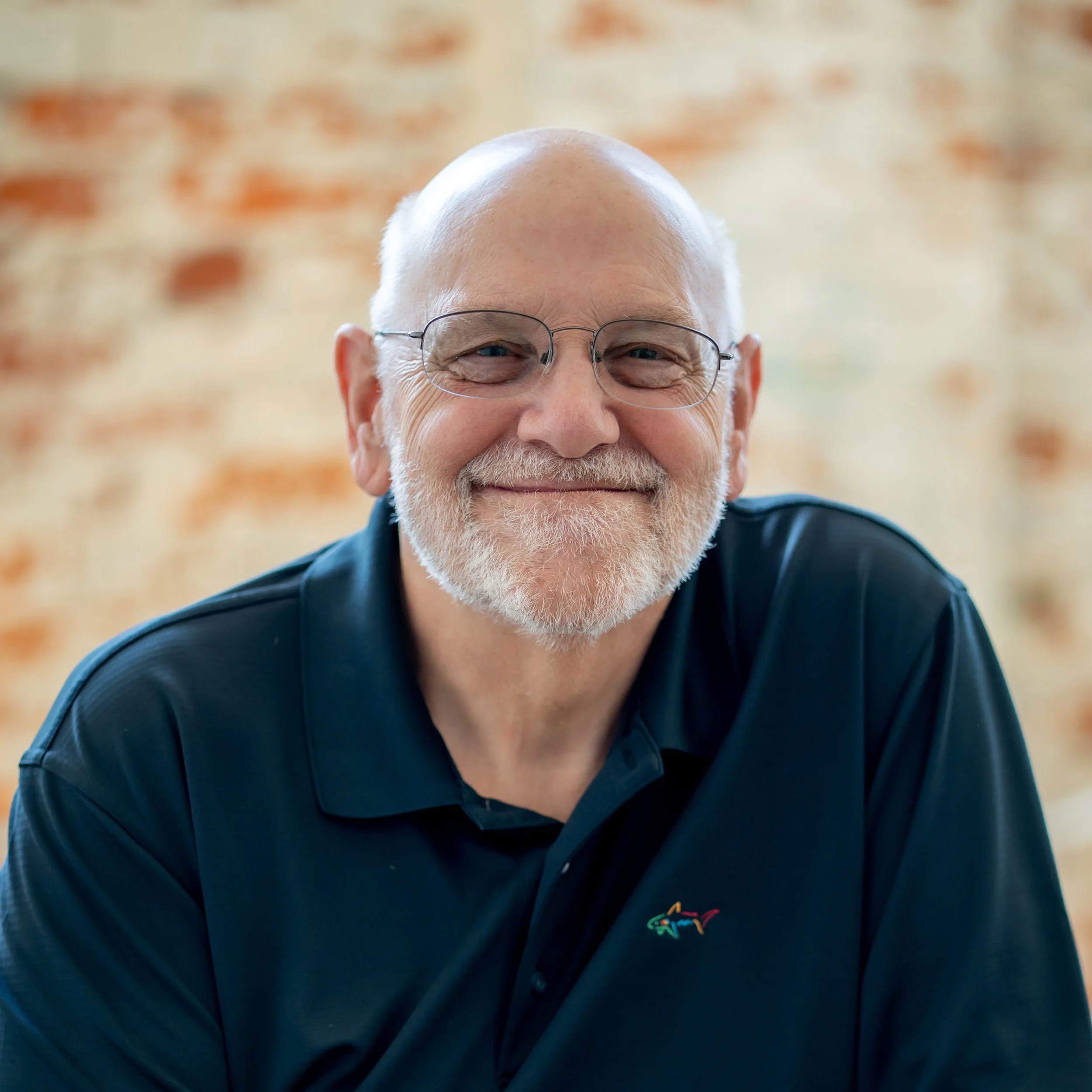Every time you hire, you are either in danger or you are creating an opportunity. The Chinese actually have a word for this - “crisis.” It is made up of two characters: one means danger and the other means opportunity.
When it comes to finding the right candidate to hire, four influences come together to form what we call “fit”: character, competency, compatibility, and capacity
1. Character
Character is the first and most obvious area to look for in a candidate. If a person does not have character, it won’t matter what their skill set is. Here are four qualities found in people with character.
Integrity: They are what you see. They will never lie to you, and they will not lie for you either.
Loyalty: They are loyal to the values of the company that made them want to have the position in the first place.
Courage: They are people of courage and will do the right thing even when it is difficult.
Fortitude: They have grit. They will not give up, even in the presence of adversity and hardship.
2. Competency
Competency means that you have the skill set to do what you have been hired to do. Here are four qualities found in candidates with competency.
Understanding: They have understanding when they have knowledge + experience + skills. They understand the task as well as how the task intersects with everything else that they have been hired to do.
Acuity: They have awareness. They are focused and alert which means they can solve problems. They get what is going on around them and can add great value.
Trustworthy: You know they are trustworthy when you can transfer something of great value into their care.
Inspires Change: Their skill set inspires others because it is both efficient and effective. They get good results, so they become follow-worthy.
3. Compatibility
A new hire needs to have compatibility with the team. My electronic devices all use different kinds of power cords. But with the right piece of equipment, they can all adapt and become compatible with the same power source. When you are hiring someone, you want to make sure they are compatible with the rest of the team. Here are four characteristics of compatibility in candidates.
Affinity: They have similar interests and values to the team and similar expectations of what it is like to work at your organization.
Accessibility: They are able to build relationships through good communication. Proximity is also an important part of accessibility, but with many people connecting through Zoom today, good communication can overcome lack of proximity.
Complementing: They are able to rely on others. This is important for experiences where they have interdependence: “I can’t do what I do unless you do what you do.”
Non-competing: They work together rather than compete with team members. A competing environment does not breed strong compatibility on the team: “If only one can win, I must win and therefore you must lose.”
4. Capacity
New hires need to have the right capacity to be fit for the role. Here are four characteristics of people with the right capacity for the job.
Fitness for…: They have the capacity for what you are trying to have them do as part of their employment – like a ship that has a berth to store its cargo.
Room for more: They have the room for more capacity and want it to be filled. They are eager to do more to carry their share of the labor. A cargo ship that only has two boxes on it is not living up to its potential or meeting its capacity. But be cautioned that a small ship that is overloaded will soon tilt and sink.
Multitasking: They can do more than one thing at once. Although some people work better by just doing one task and then moving on to the next, capacity often has to do with being able to manage several accounts or tasks at the same time. Research is debating whether multitasking is good for the company and the person, but generally, you have to be able to do more than one thing at any one time.
Puissance/Power: They can manage the right amount of labor or accomplish the right amount of skill-based deliverables needed. If you are going to buy a Ford truck, are you going to buy an F-150 or an F-5550? It depends on what you are trying to get out of it. You need to have the right horsepower and the right towing capacity.
The Biggest Mistakes in Hiring
By understanding character, competency, compatibility, and capacity, you can help avoid these mistakes that often happen in hiring.
The “Perfect” Hire: Don’t try to hire the perfect employee. No one has all four areas perfectly honed. It is a matter of when, not if, a person you hire will disappoint you. But the goal is to find someone who is able to keep growing in all of these areas.
Close One Eye: However, you do not want to ignore a deficit in one of those areas and pretend that it doesn’t exist or isn’t important. We usually think character or competency is the most important area, and we often underestimate compatibility or capacity.
Trust but Not Verify: Follow up on references and also ask the candidate to show you what they can do rather than just tell you. In an interview, when you ask about strengths and weaknesses, use phrases like “tell me about a time when ____.” Use CAR as a template: What was the Challenge, what was the Action they took, and what was the Result that followed? And if every example they share is perfect, they are probably not being straightforward with you.
Hire Unilaterally: Instead of hiring unilaterally, involve other people and get input from the team, especially from those who will be affected by this hire.
To make a great hire, avoid these mistakes and make sure you are looking at character, competency, compatibility, and capacity.
Contact us for more information on how our consultants can assist you in the search process and give you tools to discern which candidate has the right fit for your culture.
Dave Marks is a Senior Consultant at The Center Consulting Group and has over 35 years of church ministry experience including 23 years as a senior pastor. His consulting experience includes ministry assessment, leadership coaching, and strategic planning. Dave’s degrees include a B.S. in Bible, an M.S. in Organizational Leadership and a D.Min. in Leadership.




![Developing a Successful Sales and Marketing Strategy [VIDEO]](https://images.squarespace-cdn.com/content/v1/571fc0ea1d07c0fd6d72c167/1770391559147-9Z6Q4BC1EY0R8BUHCATM/sales+blog.png)
![Gratitude: A Silver Bullet for Strengthening Morale [VIDEO]](https://images.squarespace-cdn.com/content/v1/571fc0ea1d07c0fd6d72c167/1768246672364-PQNI8VHO5EEPZ3IRMY7F/gratitude+blog.png)
![Public Speaking: Using AI Ethically & Effectively to Create a Powerful Speech [VIDEO]](https://images.squarespace-cdn.com/content/v1/571fc0ea1d07c0fd6d72c167/1763735597032-XMIKMQ1D63PRC1QJ6FVV/ai+speech+blog.png)
![Preparing for the (Expectedly) Unexpected [VIDEO]](https://images.squarespace-cdn.com/content/v1/571fc0ea1d07c0fd6d72c167/e4193bcf-29f7-46c2-be12-9116791d40cf/unexpected+blog.png)
![Fundraising: How to Raise Funds for Your Nonprofit [VIDEO]](https://images.squarespace-cdn.com/content/v1/571fc0ea1d07c0fd6d72c167/1757619882819-6OARWR0QU11M7LA0ABYL/fundraising+blog.png)
![Culture: 5 Traits That Set Healthy Churches & Their Leaders Apart [VIDEO]](https://images.squarespace-cdn.com/content/v1/571fc0ea1d07c0fd6d72c167/1755633039402-KVJFNJWG0RKBCMLS5FNB/healthy+blog.png)
![Vision: 3 Must-Have Traits of Every Successful Visionary Leader [VIDEO]](https://images.squarespace-cdn.com/content/v1/571fc0ea1d07c0fd6d72c167/1749484247758-ITEGD2LZZ716112KLHXZ/visionary+blog.png)
![Advisory Boards: Should Your Business Have an Advisory Board? [VIDEO]](https://images.squarespace-cdn.com/content/v1/571fc0ea1d07c0fd6d72c167/1747149791510-HU20SY0O8LRPEHGMC6HD/advisory+blog.png)
![Leadership: How to Be a World Class Boss [VIDEO]](https://images.squarespace-cdn.com/content/v1/571fc0ea1d07c0fd6d72c167/1744640489138-X5LUNZT3JTRQYSSZXV1C/boss+thumbnail.png)
![Conflict: The Importance of Having Tough Conversations [VIDEO]](https://images.squarespace-cdn.com/content/v1/571fc0ea1d07c0fd6d72c167/1741365599296-KTWEJ5PTNH1BX2GJ9REJ/Conversations+blog.png)
![Exit Planning: The Challenge of Business Exit Planning & Why It Matters to You [VIDEO]](https://images.squarespace-cdn.com/content/v1/571fc0ea1d07c0fd6d72c167/1738339040891-VIW87N2NCZUCKLYNOHB6/exit+blog.png)

![Teams: Is Your Team Dysfunctional? [VIDEO]](https://images.squarespace-cdn.com/content/v1/571fc0ea1d07c0fd6d72c167/1733243870005-NOI69Z74DLNVLIB8MRRJ/dysfunctional+blog.png)
![How to Recruit and Inspire Volunteers [VIDEO]](https://images.squarespace-cdn.com/content/v1/571fc0ea1d07c0fd6d72c167/1728421227208-6JAUFVXEJW5KK6YE58JR/volunteers+blog.png)
![Trust: 4 Steps to Rebuild Damaged Trust [VIDEO]](https://images.squarespace-cdn.com/content/v1/571fc0ea1d07c0fd6d72c167/1725969594417-7AN9PJO2X8TTR77ACDFP/trust+blog.png)
![Blind Spots: How to Identify & Avoid Blind Spots in Your Organization [VIDEO]](https://images.squarespace-cdn.com/content/v1/571fc0ea1d07c0fd6d72c167/1722610352594-FAXECLPC61QYJH2I5YT8/blind+spot+blog.png)
![Family Business: Will the Family Business Destroy Our Family? [VIDEO]](https://images.squarespace-cdn.com/content/v1/571fc0ea1d07c0fd6d72c167/1718027719043-MU9AYPTQ7GM4XWT9EGD1/destroy+blog.png)
![Teams: How to Breathe New Life into a Broken Team [VIDEO]](https://images.squarespace-cdn.com/content/v1/571fc0ea1d07c0fd6d72c167/1714749389916-G2CWVK8OM1JJSD9058CL/breathe+blog.png)
![Planning: The Power of Planning [VIDEO]](https://images.squarespace-cdn.com/content/v1/571fc0ea1d07c0fd6d72c167/1712597764732-WHRZPRLZ6V78CBGKBPZA/PLanning+blog.png)
![Leveling Up Your Leadership: Becoming an Effective Senior Leader [VIDEO]](https://images.squarespace-cdn.com/content/v1/571fc0ea1d07c0fd6d72c167/1710266273593-QN3HEBJ5FII4GKQFH91Q/leveling+up+blog.png)
![Recruiting & Retaining “Mature” Team Members [VIDEO]](https://images.squarespace-cdn.com/content/v1/571fc0ea1d07c0fd6d72c167/1707849950823-Y5WJLYXM6ZPU55TKG27Y/recruitment+blog.png)

![Gaslighting: How to Identify It & Take Back Control [VIDEO]](https://images.squarespace-cdn.com/content/v1/571fc0ea1d07c0fd6d72c167/1699381799669-Y6XNYG2X3ZD1US80XAFY/Gaslighting+blog.png)
![Decision-Making: Why Smart Leaders Do Dumb Things [VIDEO]](https://images.squarespace-cdn.com/content/v1/571fc0ea1d07c0fd6d72c167/1696947285846-ZIA5M26B5AF9SRFGWFPV/Dumb+Things+blog.png)

![Meeting Effectiveness: 4 Different Types of Meetings & Why It Matters [VIDEO]](https://images.squarespace-cdn.com/content/v1/571fc0ea1d07c0fd6d72c167/1690296011536-23CWWE2VJ40QJ0UA1EZY/meetings+blog.png)
![Leadership: 4 Directions You Need to Lead [VIDEO]](https://images.squarespace-cdn.com/content/v1/571fc0ea1d07c0fd6d72c167/1689105063370-WQTIN47T3TP8YXQM3RMP/directions+blog.png)
![Leadership Model: Are You a Cheerleader, Drill Sergeant, or Coach? [VIDEO]](https://images.squarespace-cdn.com/content/v1/571fc0ea1d07c0fd6d72c167/1686670057921-DJ286QE8OZOQKE22SZAL/coach+blog.png)
![Developing Women Leaders: The Power of Leader Efficacy [VIDEO]](https://images.squarespace-cdn.com/content/v1/571fc0ea1d07c0fd6d72c167/1683572272369-EJ4N7BBXL0832YUM4XUN/Women+efficacy+blog.png)
